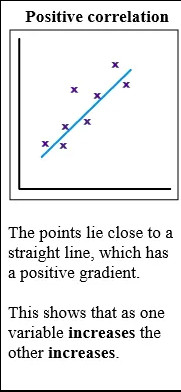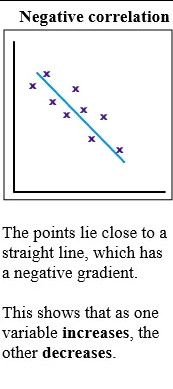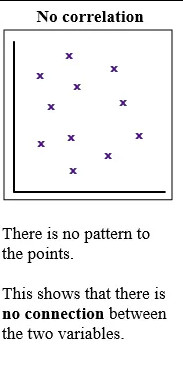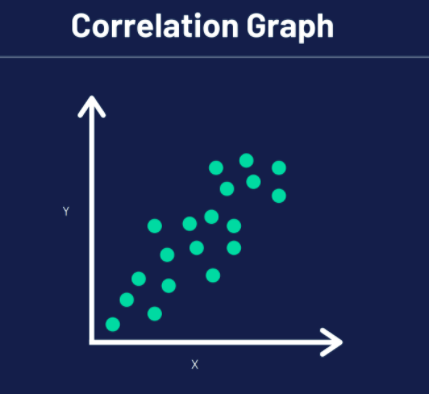Correlation?
Meaning of correlation: “co”: meaning together, “relation”: connection between 2 people, variable, things etc. Correlation: when changes of one variable effect the following/other variable. Whether it is direct or indirect, when one variable change does not affect the following or the other variable then it can be called as “Uncorrelated”.
What is positive, negative correlation & Zero correlation?

Positive correlation: When these 2 variables moves or grows/increase in same direction, which means positive value of one variable results in increase of another variable.
In simple words, if increase in “x” increases “y”, then it is called positive corelation.E.g. in general terms: When demand of any clothes/things increases the price is also increased
Negative correlation: When 2 variables say x & y moves into different/ opposite direction then it is called negative correlation.
In simple words, when value of one variable “x “is increased the value of another variable “y” is decreased. And vice-versa.
In general terms: When the price of a product is high the demand is less.


Zero correlation: Zero correlation appears when there is no relation between 2 variables. In simple words, when variables themselves are independent. In general terms: there is no relation between a boy is running & the level of patience’s in a person.
Positives of correlation:
- When 2 variables have any kind of relation between them then making prediction is easy.
- It helps researcher investigate the naturally occurring variable, which might be unethical to test experiments e.g : It can be impractical to conduct an experiment on “eyestrain is caused by watching T.V “
Limitation of correlation:
- Correlation cannot be taken as implicit causation, Eg : Even if there is a strong relation between 2 variables assuming it is caused by another.
- Correlation does not suggest or allow to explore beyond the data given.
When to use correlation?
We all know the importance of things that are in our daily life, Knowing when to use things and how, makes everything easier. Eg: Tea/coffee, and we know when to use it & how it takes our stress away, likewise, we should also know when to use correlation.
- When we consolidate direct relationship between 2 variables.
- When we are able to show the direction of the relationship.
- When x & y values are interchangeable.
Also, important to know when not to consider correlation:
- We can not use correlation is mathematical equation.
- Correlation does not help us predict and optimise.
- Correlation does not show us cause & effect.
Correlation Analysis:
The purpose of correlation is to find the association or the absence of the relation/ relationship between 2 or more variables.
When the variables are co-related or related, we can see the strength of their association. The one key benefit of having correlation is that it gives more information and clear statement of the relationship between 2 variables, than in regression.

Hoping that this part of correlation was understood by you (readers), Thank you for reading it till here,



